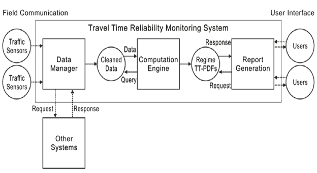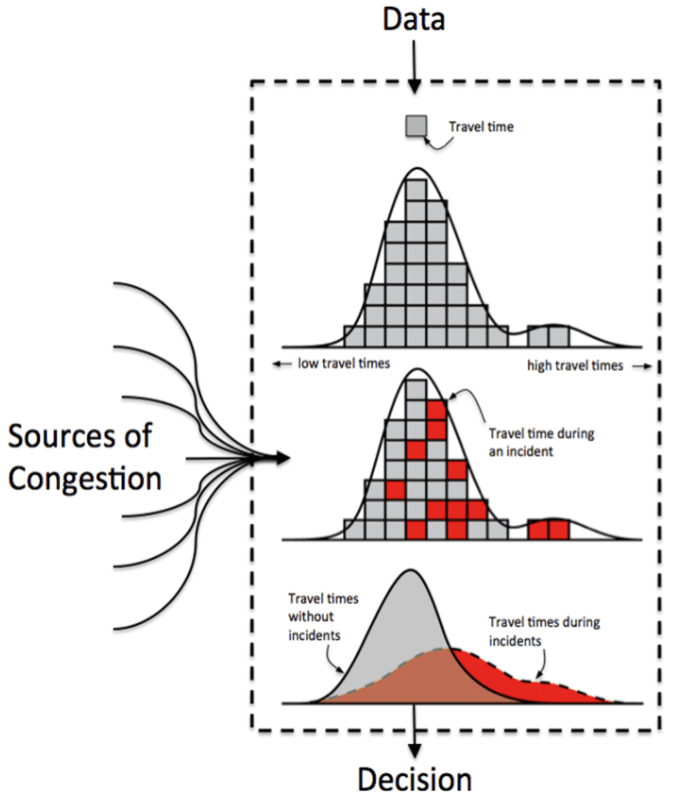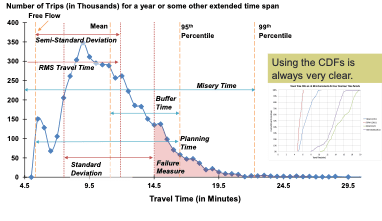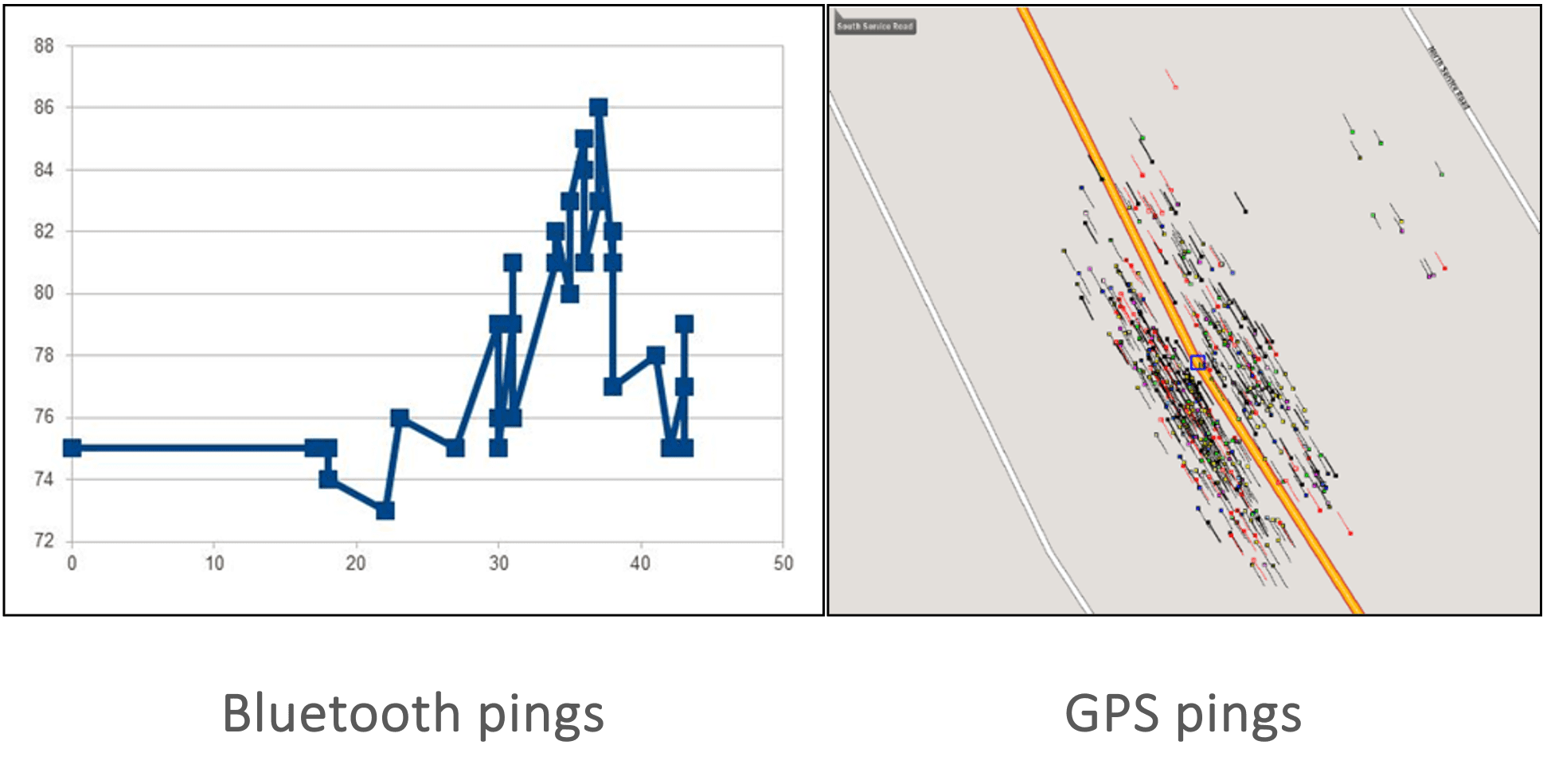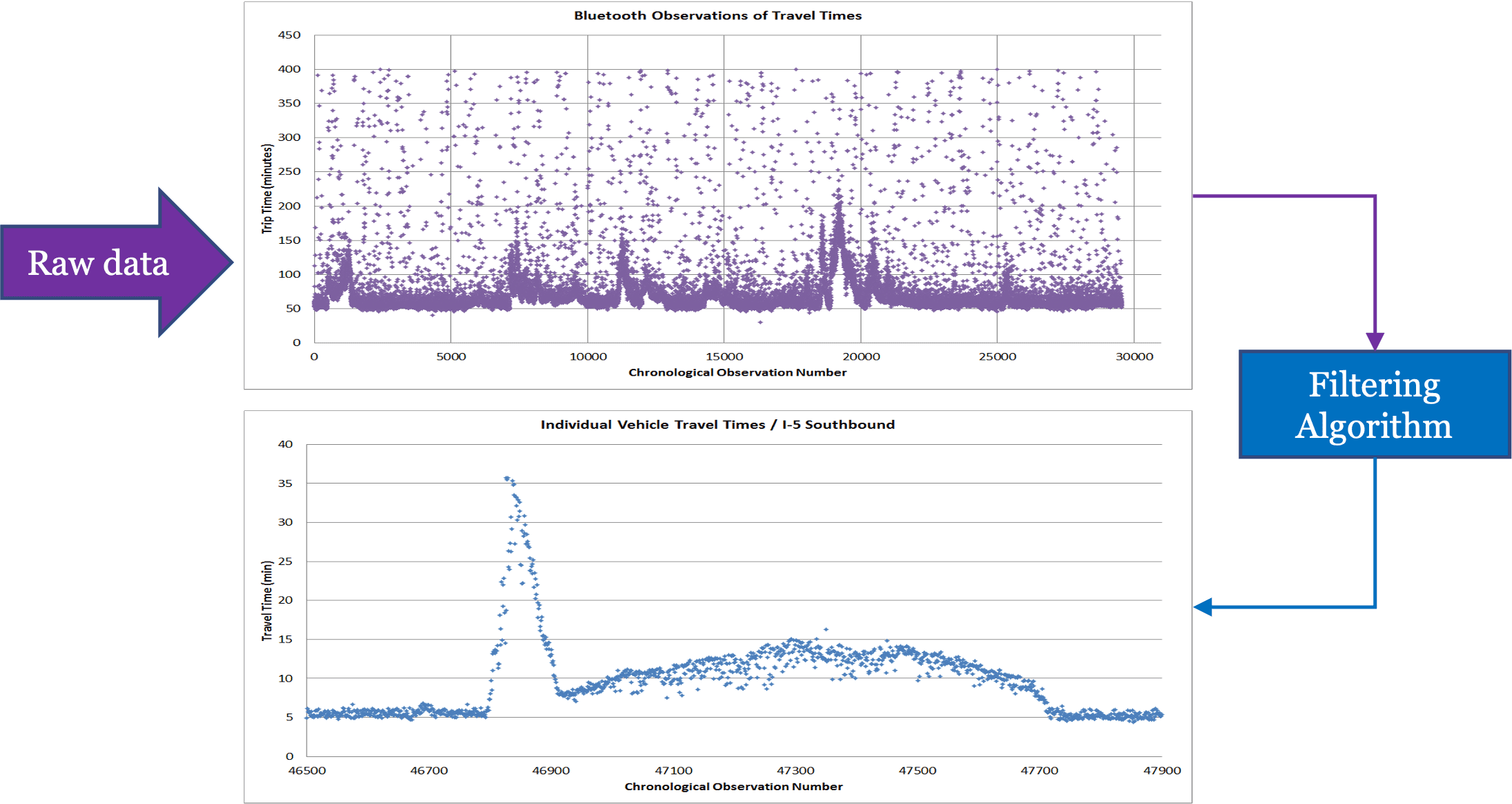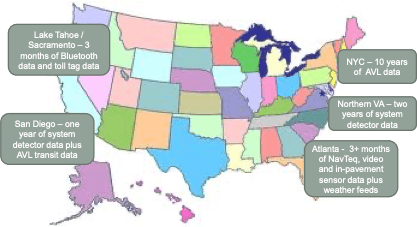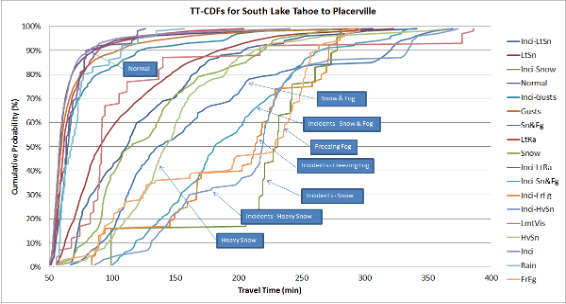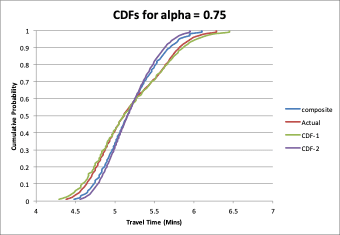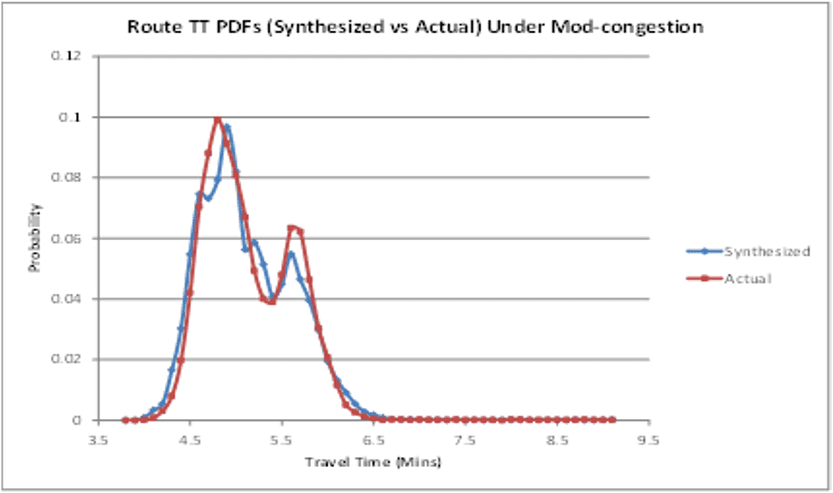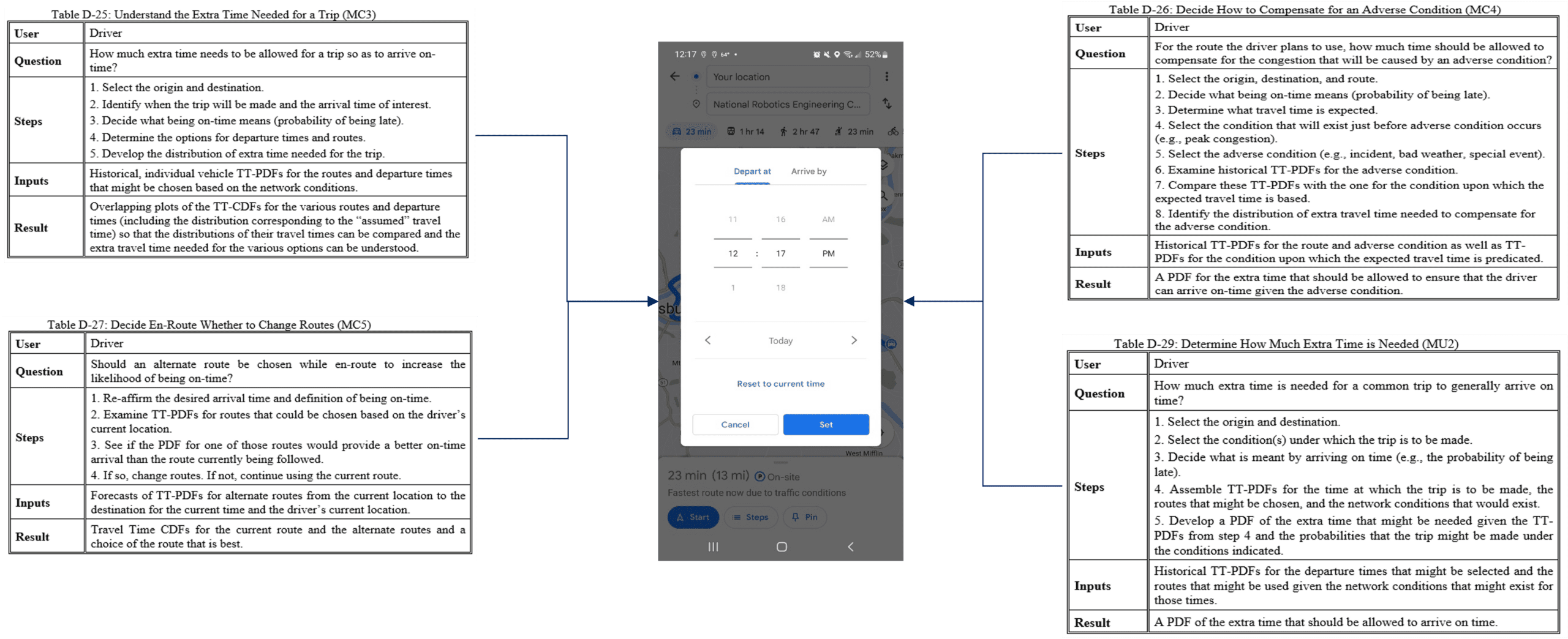Project: Novel ML-Framework For Reliability Monitoring Systems
Travel Time Reliability Monitoring Systems
Keywords: ML framework, adaptive filtering, sensor fusion, pattern recognition
Research Overview
This seminal project focused on developing an end-to-end ML framework for travel time reliability monitoring systems.
Products
- Guidebook for state and federal agencies on how to establish and monitor such systems
- Algorithmic framework for heterogenous sensor fusion
- New algorithms for computing joint density functions
- Algorithms for dynamic route guidance systems
Technical Contribution 1: Timestamp Attribution Algorithm
- Ascribing accurate timestamps from multiple pings is a very critical issue in low-level data processing
- I developed a low-level filtering algorithm that analyzes raw data and extracts the timestamp associated with a given location
Technical Contribution 2: Adaptive Filtering Algorithm to Identify Incidents
- Raw sensor data is very noisy
- My real-time adaptive filtering algorithm extracts a signal from the noise
- It enables the identification of “anomalies” in the system
Technical Contribution 3: Sensor Fusion Algorithms
- Heterogenous sensor data sources
- System detectors, cameras, Bluetooth, GPS, etc.
- Each sensor mode provides different pieces of information
- I developed multi-sensor fusion algorithms to combine data streams
Technical Contribution 4: Classification Algorithms to Characterize Reliability
- System reliability is influenced by factors such as weather, incidents, special events etc.
- I developed a classification algorithm that segments data into appropriate regimes
Technical Contribution 5: Template Matching Algorithms
- The popular KS-test didn’t work well for assessing the similarity between probability density functions
- I developed an alternate template-matching algorithm to overcome this hurdle
Technical Contribution 6: Route Synthesis Algorithm
- The random variables demonstrated have strong dependencies.
- Conventional ML-algorithms can’t be used for this synthesis
- I developed a numerical integration algorithm that takes these statistical dependencies into account and accurately synthesizes the route-level PDFs

